Story
Hi, I'm David Turner.
In 2022, at the height of the Wordle craze, I created Semantle. Semantle is a word guessing game based on the meaning of words, rather than their spelling. It's powered by Google's Word2vec, and it's very difficult. The Washington Post described it as "The Dark Souls of Wordle."
Before Semantle, I was an ordinary programmer, working on systems software. Almost every programmer working today has used code I wrote. I've been at it for twenty or so years.
I have dysgraphia, so my parents got me a laptop to take notes in middle school. Instead of taking notes, I taught myself to program. Like every kid who learns how to program, I wanted to make games. But the game industry is famous for long hours and low pay, so I never really considered it as a good career option.
The game dev itch stayed with me, and I designed a few hobby board games over the years. My favorite was a cross between Tetris and gzip (yes, the data compressor). Publishing a board game is a giant hassle, so I haven't released any of the board games.
Semantle got quite a following, and I ended up selling it. I sold it for enough money that I thought maybe I could make a living as a game developer. So I quit my job, and started working on my next game, Surfwords.
I've made three games since Semantle, and I'm definitely hooked. I fall asleep thinking about what game I should build next, and my ideas file is overflowing.
Games
Here are my recent games. You can click the screenshots to expand them, and the icons are full-resolution images.High Mountain Abbey

A mad god has invaded the abbey. Now you must solve puzzles and activate mysterious machines to defeat it. High Mountain Abbey is a first-person point-and-click puzzle game that I'm working on. It's made out of photos of dioramas, along with some stop-motion animation. Everything in the game is a photo of physical object that I made.
High Mountain Abbey will be available in 2026 for Windows, Linux, and Mac.
Surfwords
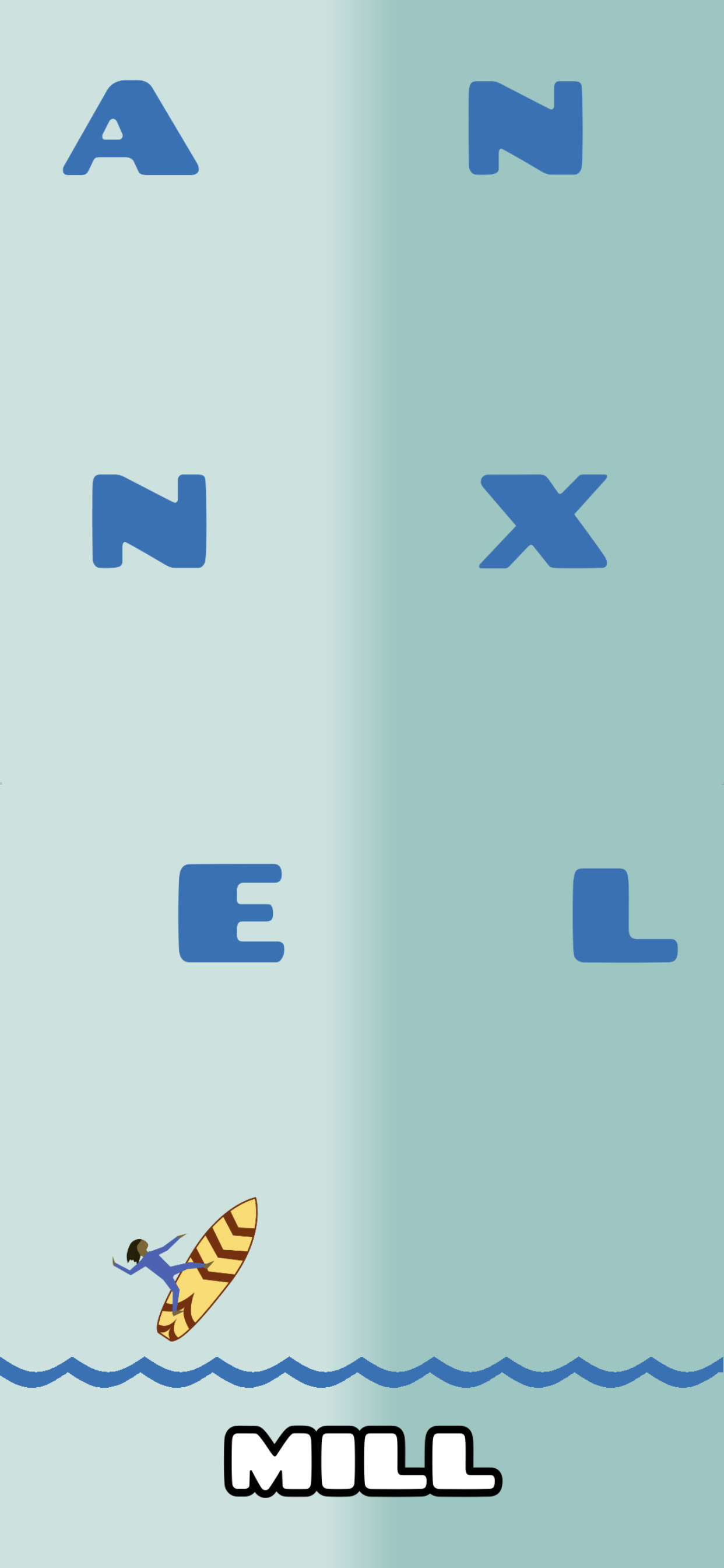
Surfwords is a fast-paced word building game. Letters drop from the top of the screen in two columns. You have to choose which column to take at each row, in order to build up a series of words. It's designed to be hard but fair: given the information available, it's always possible to choose a correct word. I spent hours tweaking the word lists, and weeks on the letter-choosing algorithm. Surfwords tries to give you an easy word, but if you start to enter a more obscure word, it will follow your lead.
Surfwords has original music by Patrick Cornelius, some of which can be heard in the trailer.
Surfwords is available for iOS, Android, Windows, Linux, and Mac
Mosaic River
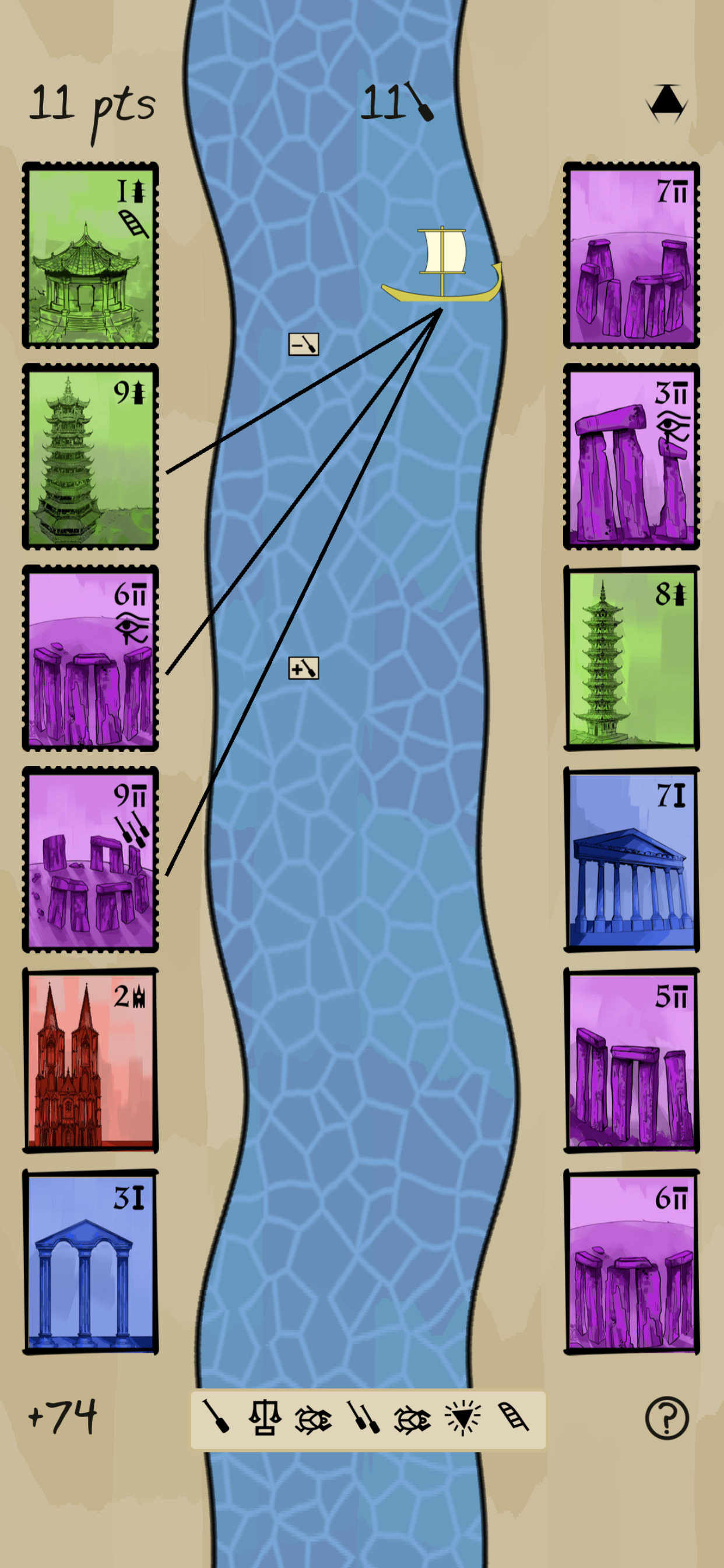
After Surfwords, I made Mosaic River, a relaxing solitaire archaeology-themed tile game. After months of fundraising and planning and reams of paperwork, it's finally time: You're going on an expedition down Mosaic River. Hopefully, you'll put together an interesting enough mosaic to earn you a PhD. On each turn, you'll sail your boat across the river and downstream, picking the mosaic tile to collect. You'll then place the tiles into a mosaic, trying to make melds (like straights and flushes) to score points.
Mosaic River is available for iOS and Android.
Deco Deck
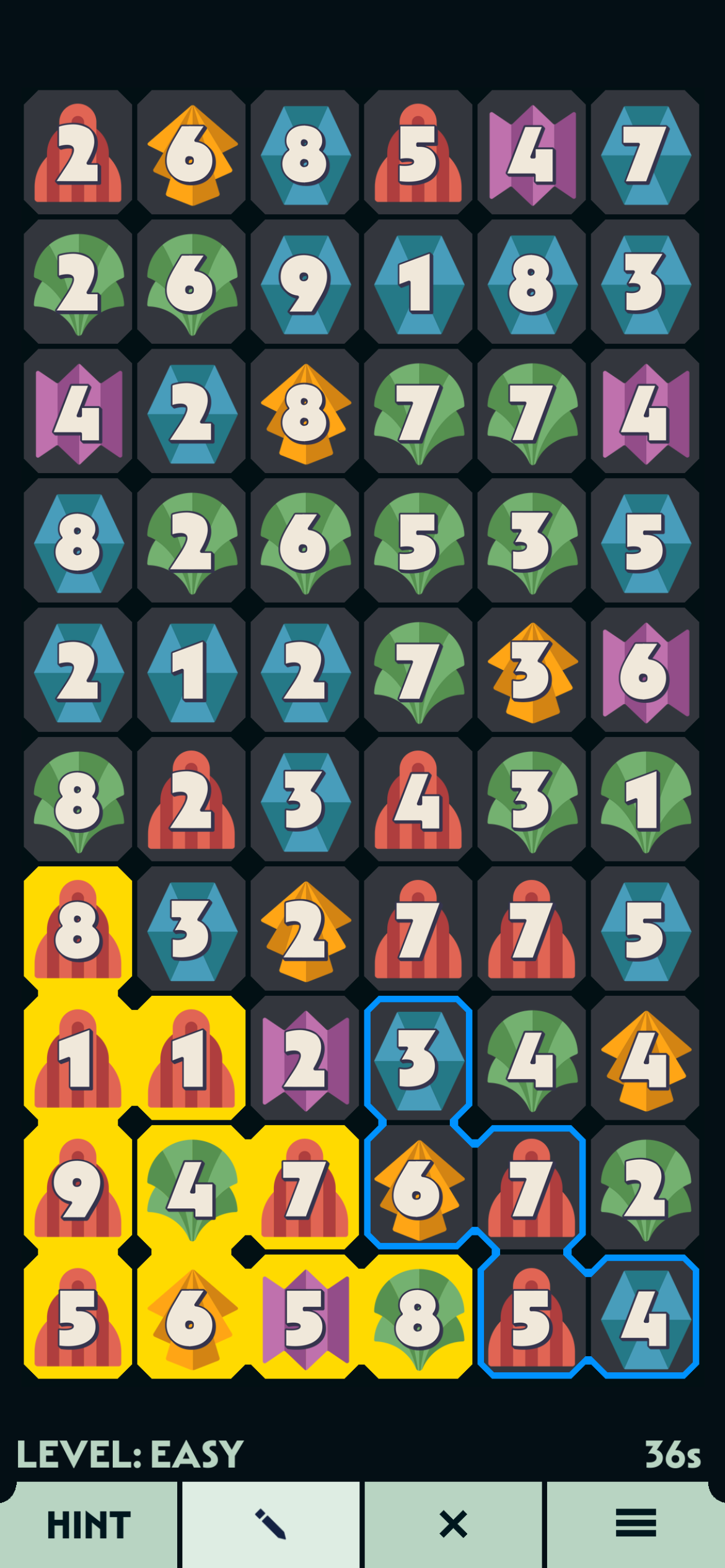
Deco Deck is a unique series of logic puzzles. If you like Two Not Touch or KenKen, this is your sort of game. You're given a grid of cards, with numbers and suits. Your goal is to link the cards on the board in connected groups of five, such that each group makes a valid "hand". Each puzzle has a unique solution. In many ways, this is my most conventional game -- but I also think it might be my favorite so far.
Deco Deck is available for iOS, Android, Windows, Linux, and Mac. It has a colorblind accessibility mode.
No Vehicles In The Park
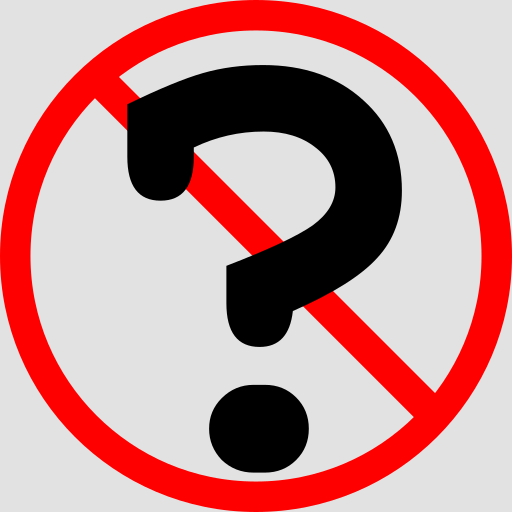
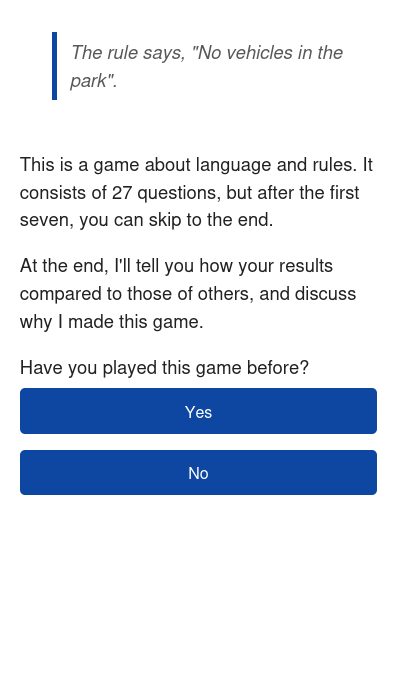
No Vehicles In The Park is an interactive exploration of semantics. It asks a single question: "does this violate the rule?" -- and then compares your answers to those of others. Inspired by Staying Alive. No Vehicles In The Park is available on the web for free.
Middles

Middles is a daily word game. I'll give you the middle of a word, and you'll try to guess the rest, one letter at a time. The secret word is chosen so that its middle is unique among commonly-known words. For instance, the middle OBC appears in the common word BOBCAT and no other common singular word. Middles is available on the web for free.
Press
- Semantle is like the Dark Souls of Wordle
- Meet Semantle — this Wordle alternative is impossibly hard
- Semantle is the Wordle clone that will have you pulling your hair out
- on wordle, french toast, and copyright law
- The Genius of Spelling Bee (I'm the one who sent the raffia)
- I appeared on the Hey, Good Game podcast, to talk about Semantle.
Contact
- You can e-mail me at novalis@novalis.org.
- You can find me in the Fediverse (think Mastodon) at https://honk.novalis.org/u/novalis.
- Product announcements, mostly, on Twitter
- I post dev diaries on my blog